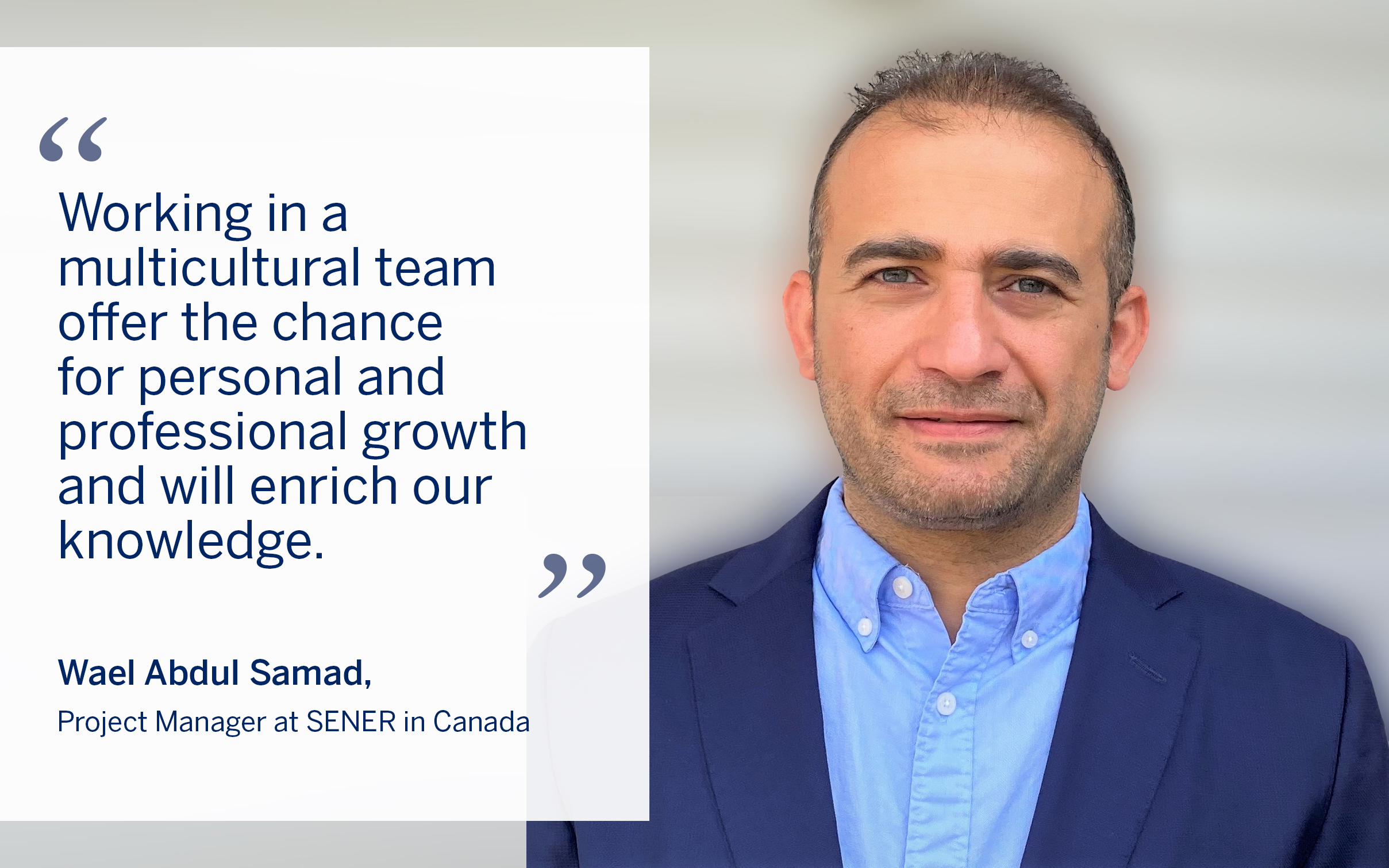
- Equality, diversity and inclusion
Categories:
Globalization and technology are fostering the development of multicultural work teams. This cultural diversity introduces new variables in team management while bringing beneficial values to the organization and the personal enrichment of team members: increased flow of talent, greater empathy and respect for opinions and beliefs, cultural exchange, fostering creativity, experience and leadership skills, among others.
We discuss the benefits and challenges of multicultural teams with Wael Abdul Samad, project manager for the independent design and construction verification of the light rail network in the Greater Montreal area (Canada), Réseau Express Métropolitain.
Tell us about your background:
I am originally from Lebanon, and I earned my bachelor degree in mechanical engineering in 2004. After my diploma, I decided to move to another country, because I have always loved to work in an international company and mega projects. I worked in Saudi Arabia for 2 years, Qatar for 8 years, and in 2015, I immigrated to Canada. I became a full member of the ‘Ordre des ingénieurs du Québec’ (OIQ) in 2018, then obtained a Graduate Diploma in Management from McGill University.
Throughout my career, I have been working in health care, railroad, and infrastructural projects, where the team has always consisted of multinational colleagues.
My native language is Arabic; I have a working proficiency in English, French and currently learning Spanish.
As a project director for the independent checking of the design and construction of the REM (Réseau express métropolitain), I am leading a multicultural team from eight different backgrounds.
What are the benefits and challenges of working in a multicultural environment?
Working in a multicultural team offer the chance for personal and professional growth, and will enrich our knowledge. I have always enjoyed working in this environment, since I feel that I am learning all the time from the different backgrounds, skills, and the way to face challenges and solve problems.
Furthermore, the diversity in a team promote personal development, and increase the creativity, and productivity among the teams.
With all these benefits, some challenges exist, mostly due to the communication barriers between colleagues.
Sometime the language difference can be challenging, since employees find difficulty to express themselves in the project language, which could lead to misunderstandings. In addition, while working remotely all the time due the current Covid19 situation, the online communication and coordination between a multicultural team can be more challenging, since each employee has his/her traditional or preferred method of communication. Example: some are visual, and other prefer oral communications.
What is your approach to understanding the perspectives of colleagues from different backgrounds?
As I find the multicultural environment to be an advantage for the work environment, which can permanently benefit the whole team, I always get along with the different perspective of colleagues and their attitude towards others.
Indeed, I recognize and am aware of the difference that exist between different multicultural people. In addition, I respect and appreciate other cultures, and I try to learn more about them, to better understand their different background.
Besides, I try to use a clear and open communication, with active listening, especially when dealing with colleagues for the first time, as it is easy for misunderstandings to occur simply due to cultural differences. For example, some cultures have a more direct and straightforward style of addressing problems, while others prefer to focus on the relationship and take a more reserved approach.
However, after a while the team will be more synchronised, and used to each other.
How can we turn multiculturalism into a competitive advantage for the organisation?
Multiculturalism can be an immense competitive advantage for an organisation, when employees feel valued, supported and had the opportunity to work in the right place. They will form an effective team, which will be able to produce better quality work. Additionally, a multicultural team will lead to a better connection with the client, as the team will be able to better understand their client’s backgrounds, attitudes and expectations.
In my opinion, effective and frequent communication, whether inside the work like a multicultural training or through activities outside the workplace, will bring colleagues together and help to form a harmonious team.
What advice would you give to those who work or will work in multicultural and remote teams?
Today, many employees have to work in a multicultural team, and this is a great opportunity to learn more about different cultural traditions. Working closely with colleagues who speak different languages, and from different backgrounds, will expose us to different culture practises. They always have unique stories to tell, which enrich our collective knowledge. Sometimes it is also an opportunity to learn a new language.
Obviously, we all need to be open-minded, accept each other, and listen to each other carefully.
Finally working in a multicultural environment, will promote professional development and open the mind to new ideas, and new ways of solving problems.
According to Henry Ford, American founder of the Ford Motor Company, “If you always do what you’ve always done, you’ll always get what you’ve always got”.
Administrador
CEO of TEMPAC
El próximo 20 de julio se conmemora el 50 aniversario de la llegada del hombre a la Luna. Entre las misiones espaciales en la Luna, destaca el proyecto internacional Lunar Orbital Platform-Gateway (LOP-G), con participación de las agencias espaciales estadounidense (NASA), rusa (Roscosmos), canadiense (CSA), japonesa (JAXA) y europea (ESA).

 About us
About us

